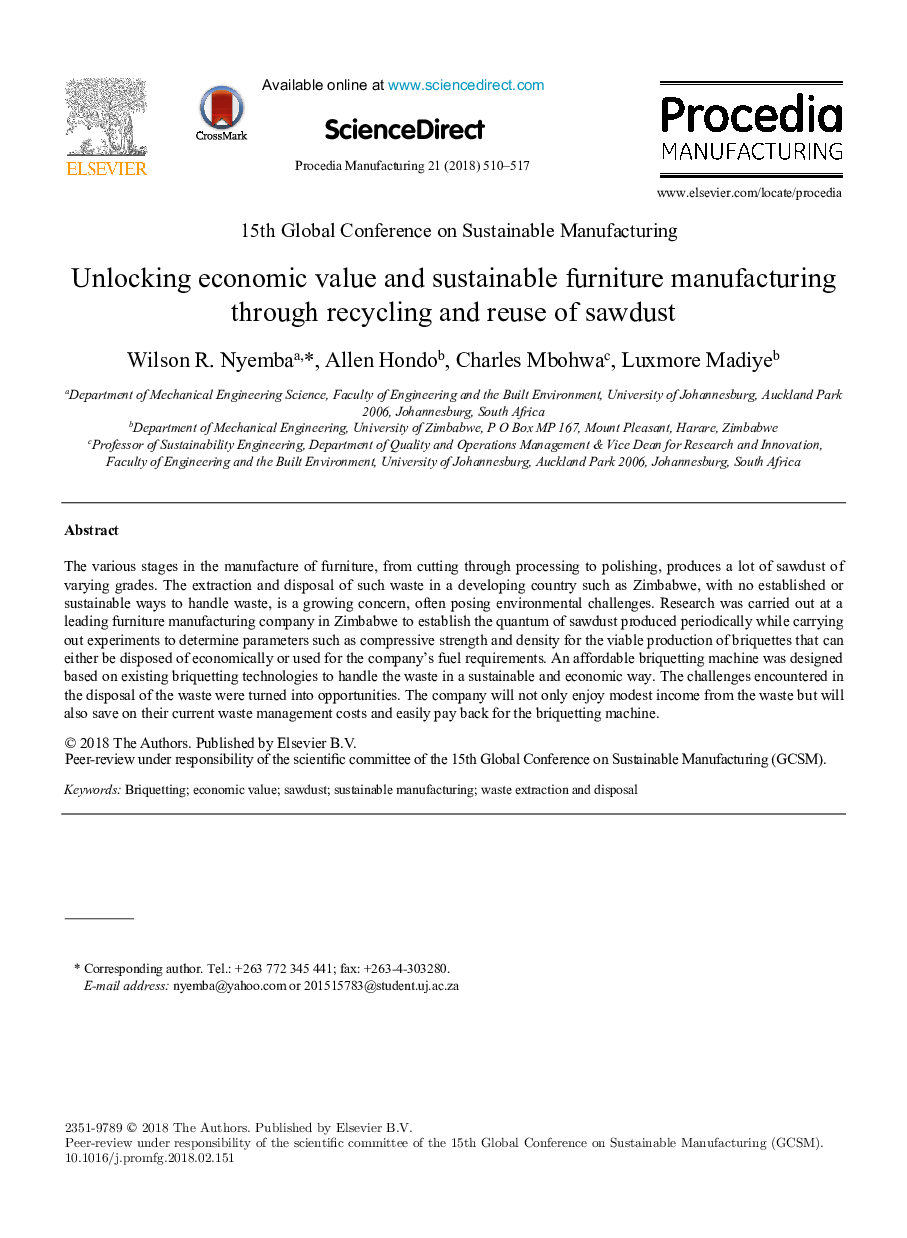| Article ID | Journal | Published Year | Pages | File Type |
|---|---|---|---|---|
| 7545299 | Procedia Manufacturing | 2018 | 8 Pages |
Abstract
The various stages in the manufacture of furniture, from cutting through processing to polishing, produces a lot of sawdust of varying grades. The extraction and disposal of such waste in a developing country such as Zimbabwe, with no established or sustainable ways to handle waste, is a growing concern, often posing environmental challenges. Research was carried out at a leading furniture manufacturing company in Zimbabwe to establish the quantum of sawdust produced periodically while carrying out experiments to determine parameters such as compressive strength and density for the viable production of briquettes that can either be disposed of economically or used for the company's fuel requirements. An affordable briquetting machine was designed based on existing briquetting technologies to handle the waste in a sustainable and economic way. The challenges encountered in the disposal of the waste were turned into opportunities. The company will not only enjoy modest income from the waste but will also save on their current waste management costs and easily pay back for the briquetting machine.
Related Topics
Physical Sciences and Engineering
Engineering
Industrial and Manufacturing Engineering
Authors
Wilson R. Nyemba, Allen Hondo, Charles Mbohwa, Luxmore Madiye,
